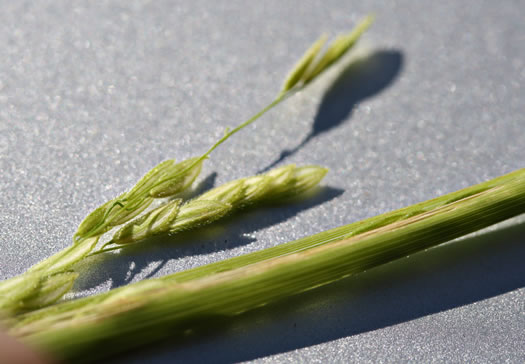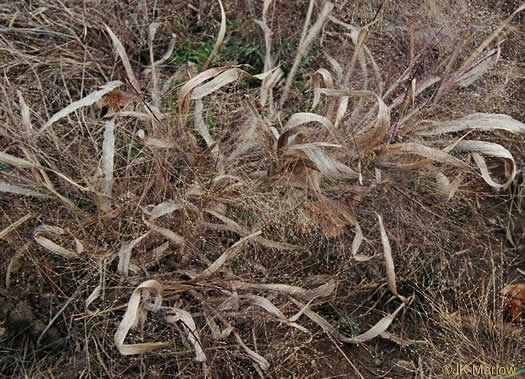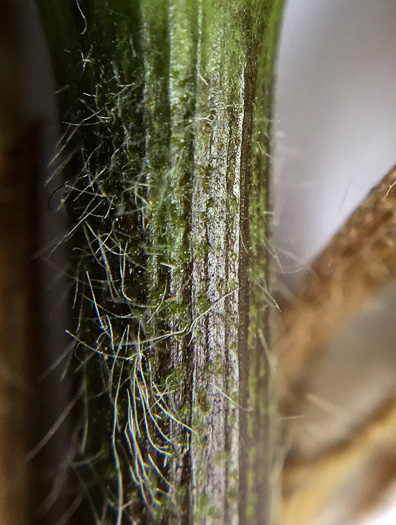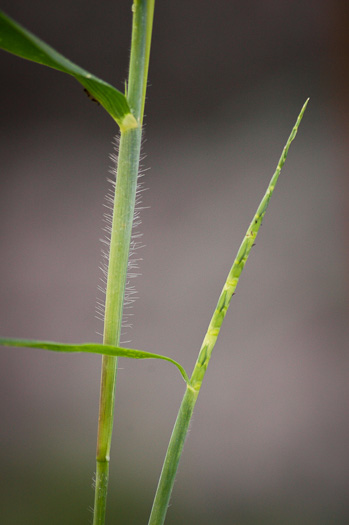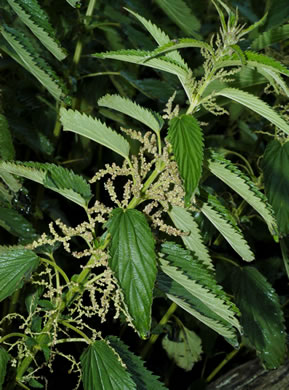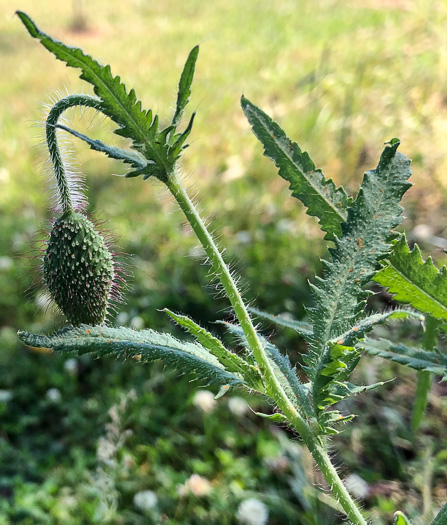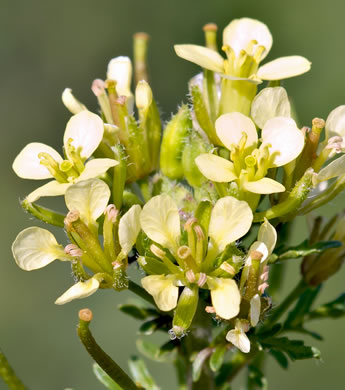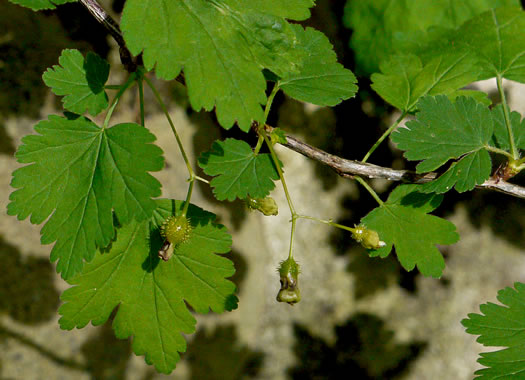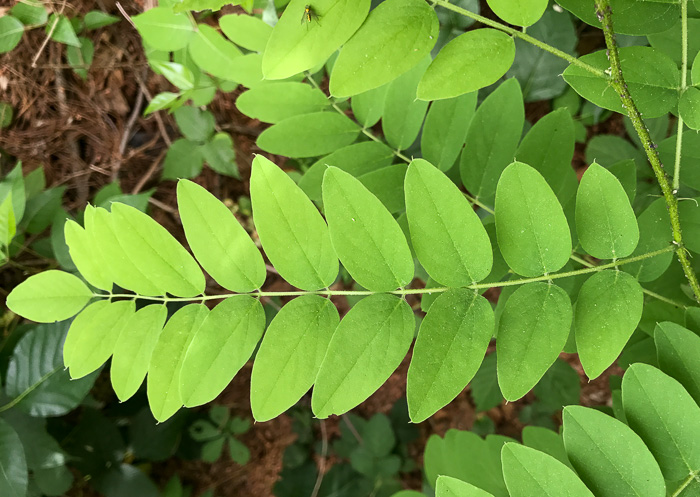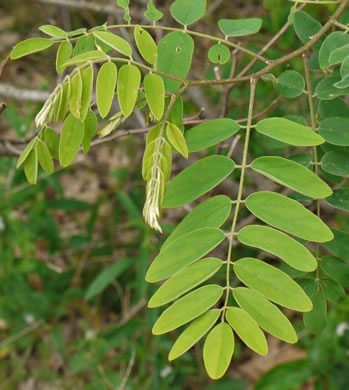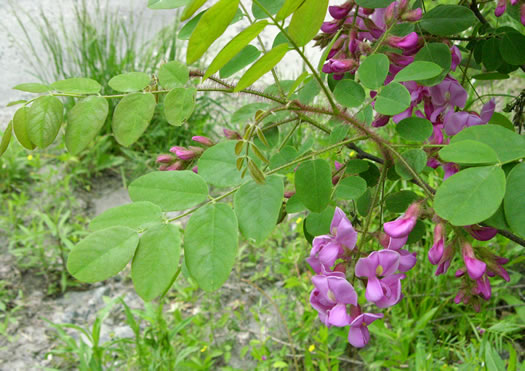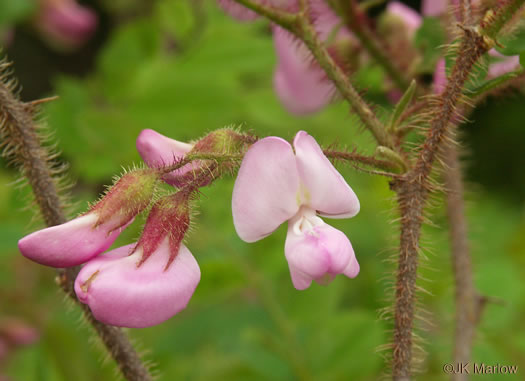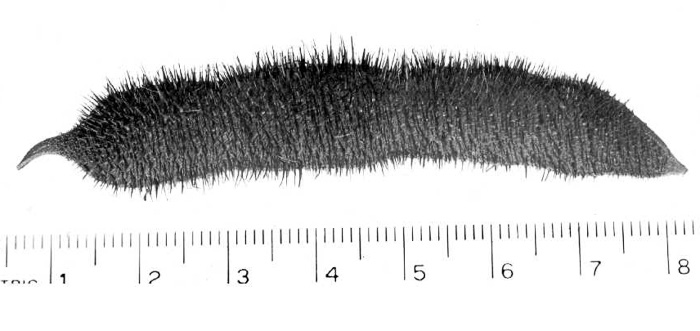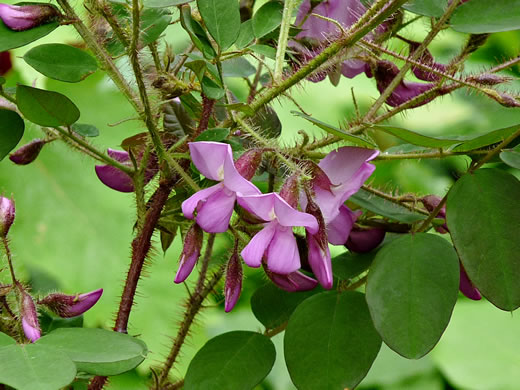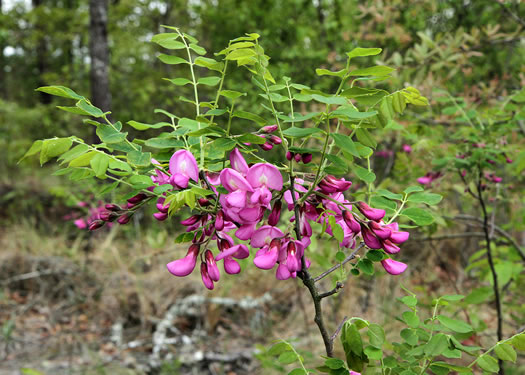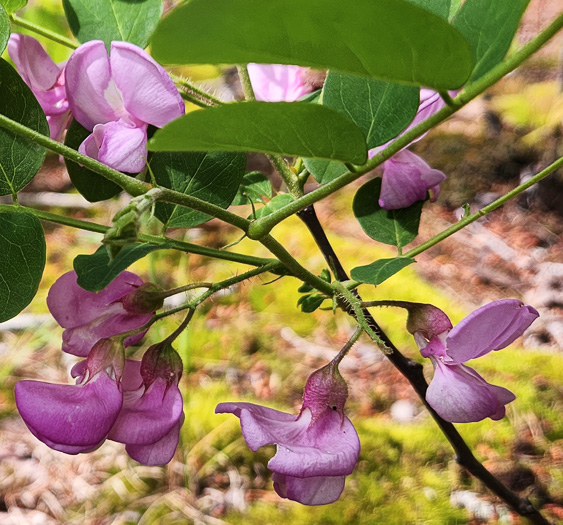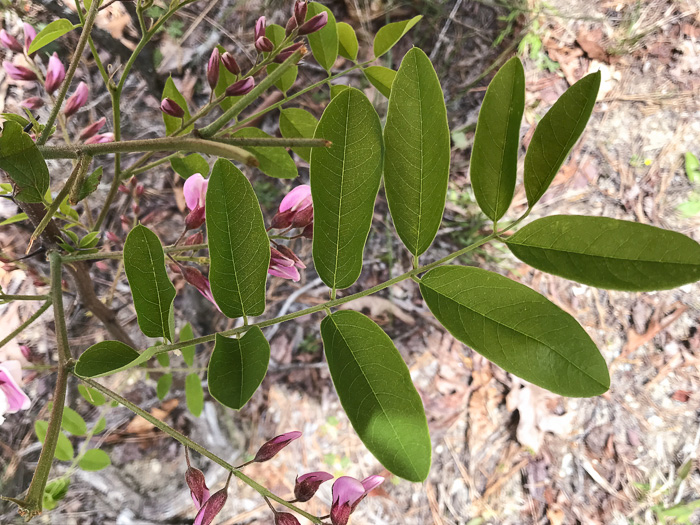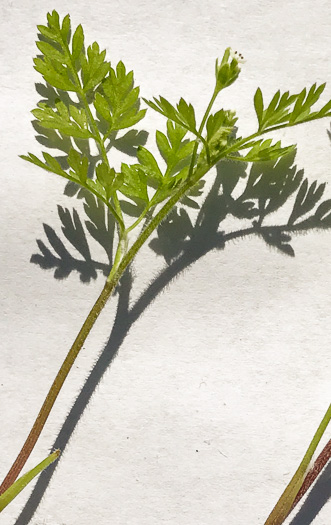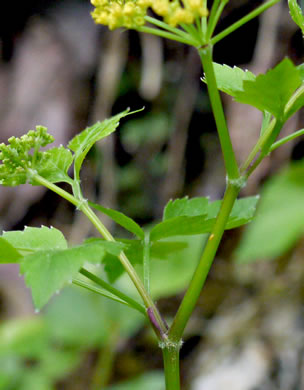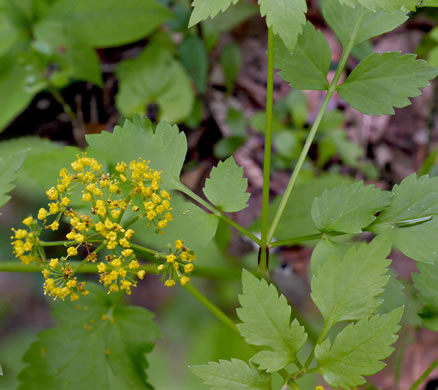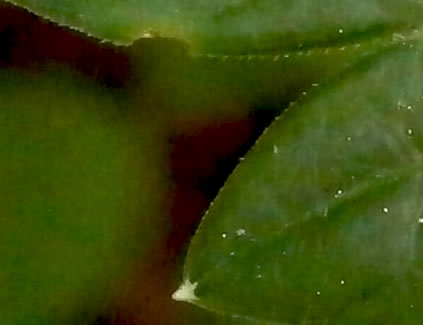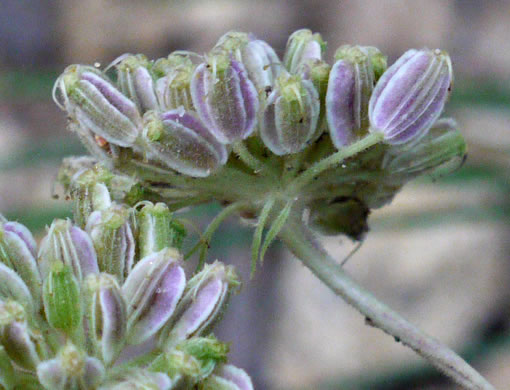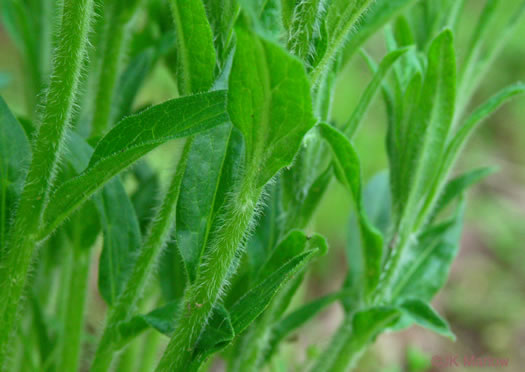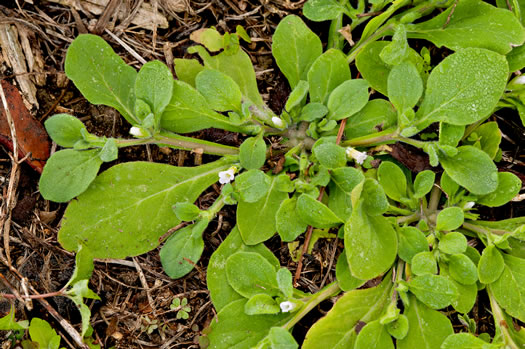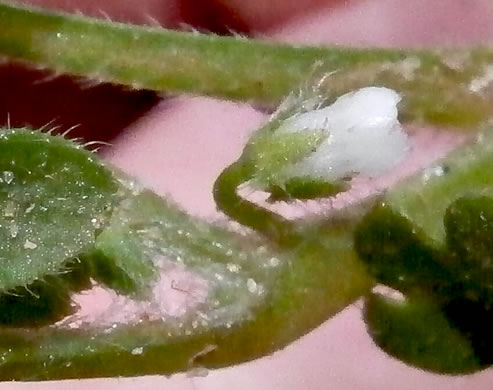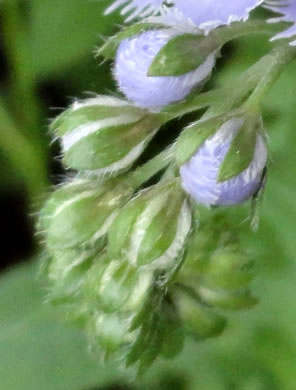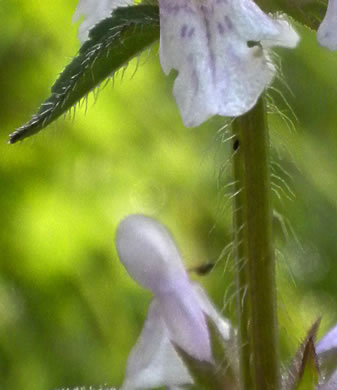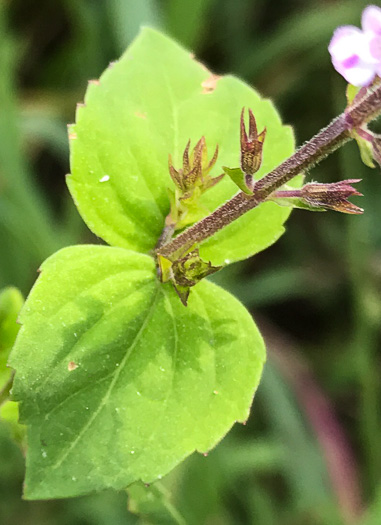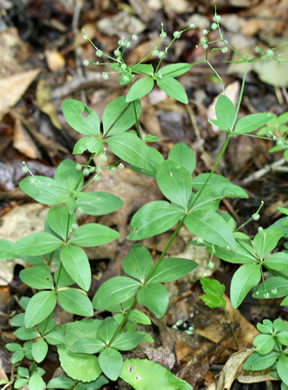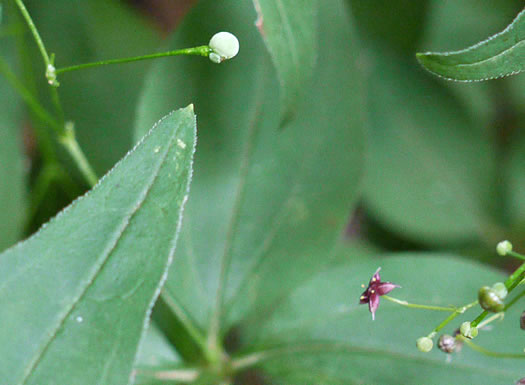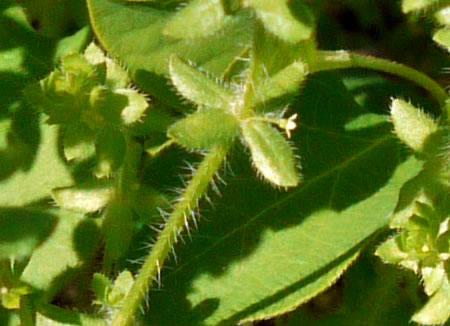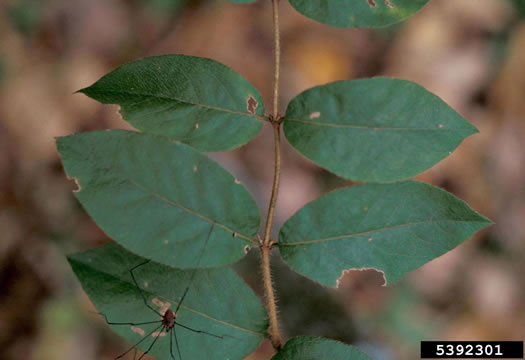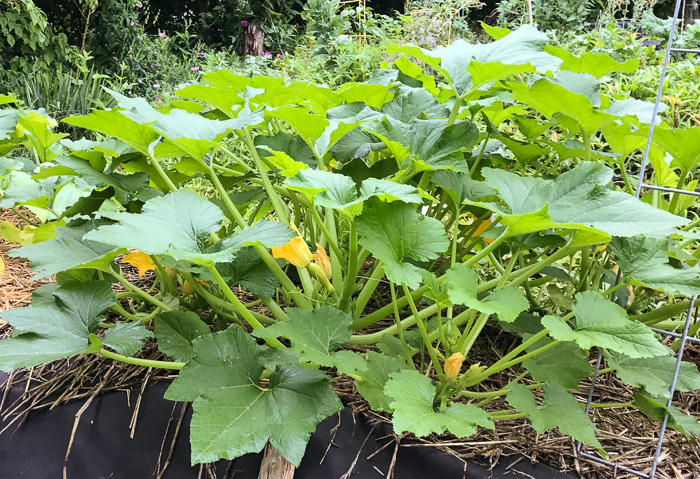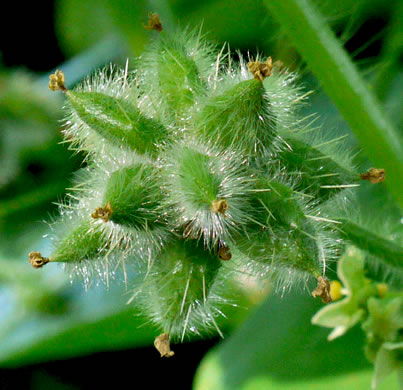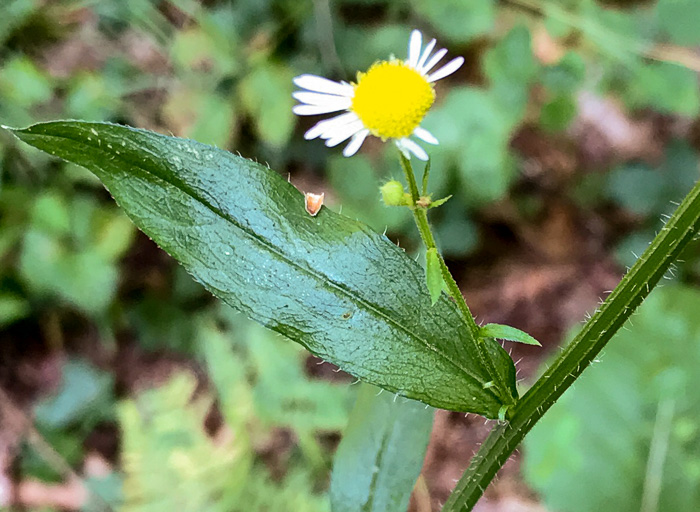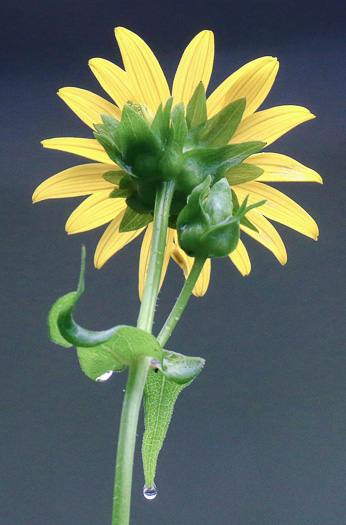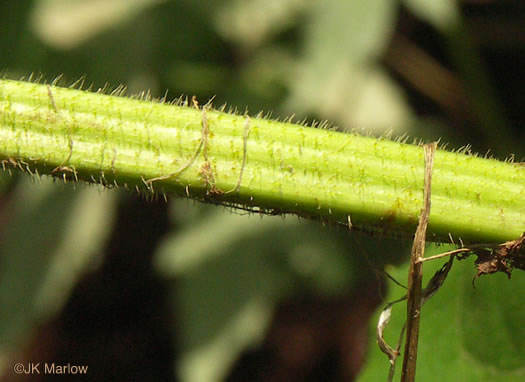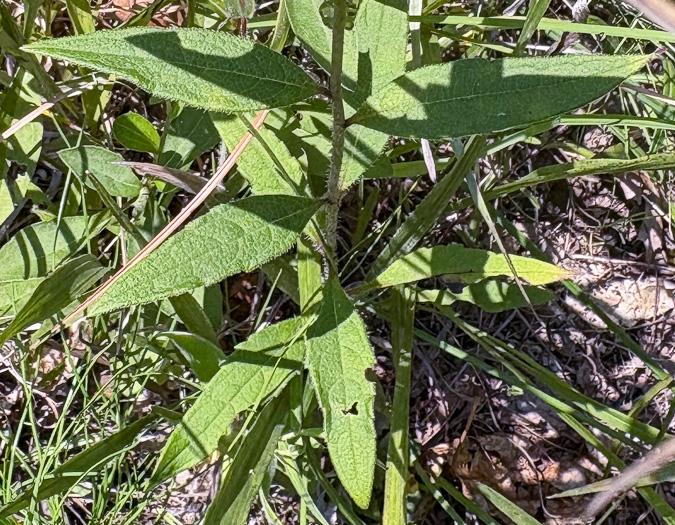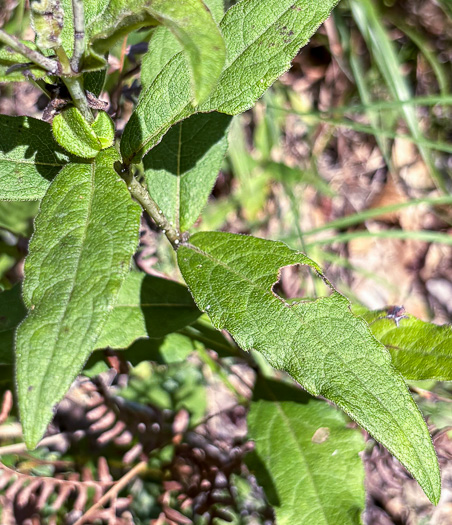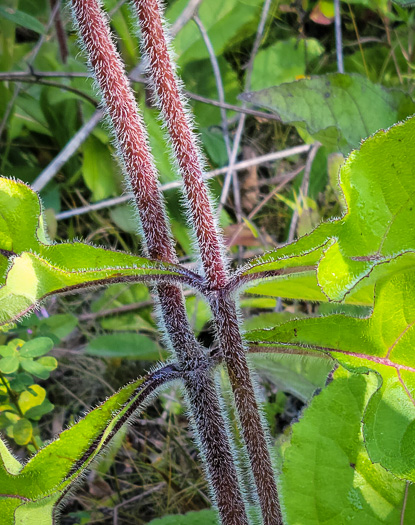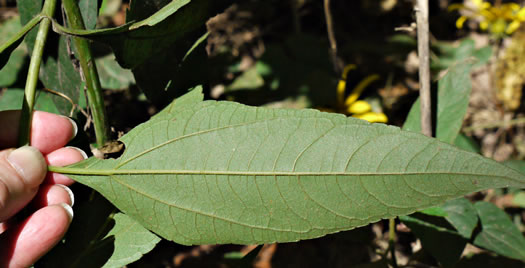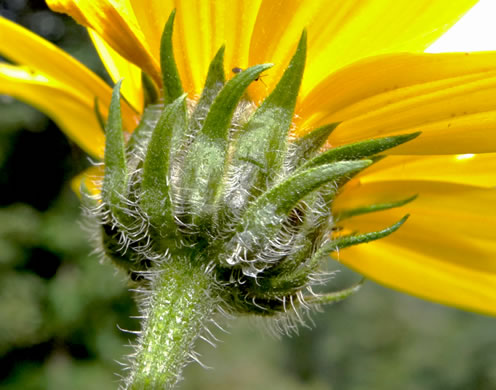Your search found 44 image(s) illustrating the term "hispid." For a written explanation, click on "hispid" in the Glossary.
To see larger pictures, click or hover over the thumbnails.
To go to the plant's detail page, click its name.
 Rice Cutgrass,
Leersia oryzoides
Rice Cutgrass,
Leersia oryzoides
Spikelets elliptic, sparsely hispidulous, per Manual of the Grasses of the United States (Hitchcock & Chase, 1950).
 Old-witch Panicgrass,
Panicum capillare
Old-witch Panicgrass,
Panicum capillare
Blades 10-25cm long, 5-15mm wide, hispid on both surfaces; sheaths hispid, per Manual of the Grasses of the United States (Hitchcock & Chase, 1950).
 Deer-tongue Witchgrass,
Dichanthelium clandestinum
Deer-tongue Witchgrass,
Dichanthelium clandestinum
Leaf sheaths (at least the lower ones) papillose-hispid with spreading hairs, per Weakley's Flora (2020).
 Itch-grass,
Rottboellia cochinchinensis
Itch-grass,
Rottboellia cochinchinensis
Sheaths papillose-hispid [having stiff hairs on swollen nipple-like bases], per Manual of the Grasses of the United States (Hitchcock & Chase, 1950).
 European Stinging Nettle,
Urtica dioica ssp. dioica
European Stinging Nettle,
Urtica dioica ssp. dioica
Stems & leaf blades strongly hispid w stinging hairs (on both leaf surfaces), per Weakley's Flora.
 Corn Poppy,
Papaver rhoeas
Corn Poppy,
Papaver rhoeas
Plants hispid to setulose [covered with minute bristles], per Flora of North America.
 Common Dog-mustard,
Erucastrum gallicum
Common Dog-mustard,
Erucastrum gallicum
Sepals sparsely hispid apically; petals white to pale yellow, per Flora of North America.
 Prickly Gooseberry,
Ribes cynosbati
Prickly Gooseberry,
Ribes cynosbati
Fruit hispid; peduncles 7-25mm long, per Weakley's Flora (2012).
 Clammy Locust,
Robinia viscosa
Clammy Locust,
Robinia viscosa
Usually 13-21 leaflets [vs. R. hispida usually 9-13], per Robinia (Leguminosae: Papilionoideae) (Isely & Peabody, 1984).
 Granite Dome Locust,
Robinia hartwigii
Granite Dome Locust,
Robinia hartwigii
Leaflets usually 13-21, plants never with long, hispid pubescence, per Weakley's Flora (2015).
 Common Bristly Locust,
Robinia hispida var. hispida
Common Bristly Locust,
Robinia hispida var. hispida
Twigs and leafstalks conspicuously hispid with hairs 1-5mm long, per Weakley's Flora (2015).
 Common Bristly Locust,
Robinia hispida var. hispida
Common Bristly Locust,
Robinia hispida var. hispida
Peduncles, rachises & pedicels more or less hispid; calyx hispid, per Vascular Flora of the Carolinas (Radford, Ahles, & Bell, 1968).
 Arnot Bristly Locust,
Robinia hispida var. fertilis
Arnot Bristly Locust,
Robinia hispida var. fertilis
Plants fruit abundantly (vs. sterile or fruiting scantily in var. hispida), per Weakley's Flora (2012).
 Arnot Bristly Locust,
Robinia hispida var. fertilis
Arnot Bristly Locust,
Robinia hispida var. fertilis
Twigs and leafstalks conspicuously hispid; leaflets relatively broad, per Weakley's Flora (2012).
 Dwarf Bristly Locust,
Robinia nana
Dwarf Bristly Locust,
Robinia nana
Resembling R. hispida (Bristly Locust) but lacking its bristles. — Will Stuart
 Boynton's Locust,
Robinia hispida var. rosea
Boynton's Locust,
Robinia hispida var. rosea
...may have partially or mostly glandular, fine or semihispid pubescence, per Robinia (Leguminosae: Papilionoideae) (Isely & Peabody, 1984).
 Kelsey's Locust,
Robinia hispida var. kelseyi
Kelsey's Locust,
Robinia hispida var. kelseyi
Has narrower leaflets than any other R. hispida except occasional forms of var. rosea, per Robinia (Leguminosae: Papilionoideae) (Isely & Peabody, 1984).
 Southern Chervil,
Chaerophyllum tainturieri
Southern Chervil,
Chaerophyllum tainturieri
Stems hispid, trichomes spreading, or retrorse below [look at the shadow], per Vascular Flora of the Carolinas (Radford, Ahles, & Bell, 1968).
 Hairy-jointed Meadow-parsnip,
Thaspium barbinode
Hairy-jointed Meadow-parsnip,
Thaspium barbinode
The hispid, purple-tinged leaf sheath is a useful additional [id] character for this species, per Weakley's Flora (2022).
 Hairy-jointed Meadow-parsnip,
Thaspium barbinode
Hairy-jointed Meadow-parsnip,
Thaspium barbinode
The hispid, purple-tinged leaf sheath is a good [field id] character, per Weakley's Flora (2012).
 Hairy-jointed Meadow-parsnip,
Thaspium barbinode
Hairy-jointed Meadow-parsnip,
Thaspium barbinode
All leaf margins hispidulous, not hyaline, per Vascular Flora of the Carolinas (Radford, Ahles, & Bell, 1968).
 Hairy Angelica,
Angelica venenosa
Hairy Angelica,
Angelica venenosa
Fruit hispid, strongly flattened dorsally, ribbed, the lateral ribs winged, per Vascular Flora of the Carolinas (Radford, Ahles, & Bell, 1968).
 Butterfly Milkweed,
Asclepias tuberosa var. tuberosa
Butterfly Milkweed,
Asclepias tuberosa var. tuberosa
Stems stout, hirsute to hispid; the sap not milky, per Vascular Flora of the Carolinas (Radford, Ahles, & Bell, 1968).
 Jamaica Weed,
Nama jamaicensis
Jamaica Weed,
Nama jamaicensis
Low, spreading, hispidulous herb. Leaves obovate, petiole absent or indistinct, per Vascular Flora of the Carolinas (Radford, Ahles, & Bell, 1968).
 Baby Blue Eyes,
Nemophila aphylla
Baby Blue Eyes,
Nemophila aphylla
Calyx lobes lanceolate, pilose-hispid, per Vascular Flora of the Carolinas (Radford, Ahles, & Bell, 1968).
 Miami-mist,
Phacelia purshii
Miami-mist,
Phacelia purshii
Calyx lobes linear or weakly spatulate, hispid, per Vascular Flora of the Carolinas (Radford, Ahles, & Bell, 1968).
 Indian Heliotrope,
Heliotropium indicum
Indian Heliotrope,
Heliotropium indicum
Leaves ovate to elliptic and long-petioled, plant villosulous-hispid, per Vascular Flora of the Carolinas (Radford, Ahles, & Bell, 1968).
 Roughleaf Hedgenettle,
Stachys aspera
Roughleaf Hedgenettle,
Stachys aspera
Stems copiously long hispid on the angles (rarely remotely so), per Vascular Flora of the Carolinas (Radford, Ahles, & Bell, 1968).
 Miniature Beefsteak-plant,
Mosla dianthera
Miniature Beefsteak-plant,
Mosla dianthera
Calyx veins minutely hispid; upper lip reflexed, lower lip erect, per Flora of China.
 Forest Bedstraw,
Galium circaezans
Forest Bedstraw,
Galium circaezans
Leaves ovate to elliptic, acute, sparsely hispidulous [w stiff minute hairs], per Vascular Flora of the Carolinas (Radford, Ahles, & Bell, 1968).
 Hairy Bedstraw,
Galium pilosum
Hairy Bedstraw,
Galium pilosum
Leaves elliptic to weakly ovate, mucronate, pilose-hispid, per Vascular Flora of the Carolinas (Radford, Ahles, & Bell, 1968).
 Purple Bedstraw,
Galium latifolium
Purple Bedstraw,
Galium latifolium
Leaf margins and veins hispidulous [minutely rough with firm stiff hairs], per Vascular Flora of the Carolinas (Radford, Ahles, & Bell, 1968).
 Piedmont Crosswort,
Galium pedemontanum
Piedmont Crosswort,
Galium pedemontanum
Leaves elliptic, 5-10mm long, 2-3mm wide, acute, hispid, per Vascular Flora of the Carolinas (Radford, Ahles, & Bell, 1968).
 Standish's Honeysuckle,
Lonicera standishii
Standish's Honeysuckle,
Lonicera standishii
Branches retrorsely hispid with reddish-brown hairs, per Weakley's Flora (2012).
 Crookneck Squash,
Cucurbita melopepo var. melopepo
Crookneck Squash,
Cucurbita melopepo var. melopepo
Stems and leaves hispid with pustulate-based hairs, per Weakley's Flora (2020).
 Bur-cucumber,
Sicyos angulatus
Bur-cucumber,
Sicyos angulatus
Ellipsoid berries are 1-2 cm long and hispid with long brittle trichomes, per Vascular Flora of the Carolinas (Radford, Ahles, & Bell, 1968).
 Annual Fleabane,
Erigeron annuus
Annual Fleabane,
Erigeron annuus
Stems sparsely piloso-hispid (hairs spreading), sometimes strigose distally, per Flora of North America.
 Common Cup-plant,
Silphium perfoliatum
Common Cup-plant,
Silphium perfoliatum
Stem square in crosssection, glabrous or glabrescent (vs. stem of S. connatum spreading-hispid), per Weakley's Flora (2023).
 Virginia Cup-plant,
Silphium connatum
Virginia Cup-plant,
Silphium connatum
Stem square, and spreading-hispid (rarely nearly glabrous), per Weakley's Flora (2023).
 Starry Rosinweed,
Silphium asteriscus var. asteriscus
Starry Rosinweed,
Silphium asteriscus var. asteriscus
Mid and lower stem leaves opposite; stem conspicuously hispid (or at least scabrous), per Weakley's Flora (2025).
 Starry Rosinweed,
Silphium asteriscus var. asteriscus
Starry Rosinweed,
Silphium asteriscus var. asteriscus
Basal leaves caducous; stem leaves hirsute, hispid, or scabrous, per Flora of North America.
 Purple-disk Sunflower,
Helianthus atrorubens
Purple-disk Sunflower,
Helianthus atrorubens
Stems erect, proximally villous to strigoso-hispid, distally hispid or glabrate, per Flora of North America.
 Thinleaf Sunflower,
Helianthus decapetalus
Thinleaf Sunflower,
Helianthus decapetalus
Leaf abaxial faces ± scabro-hispidulous, relatively sparsely gland-dotted, per Flora of North America.
 Jerusalem Artichoke,
Helianthus tuberosus
Jerusalem Artichoke,
Helianthus tuberosus
Phyllaries ciliate, abaxial faces hispidulous or puberulent, gland-dotted, per Flora of North America.

